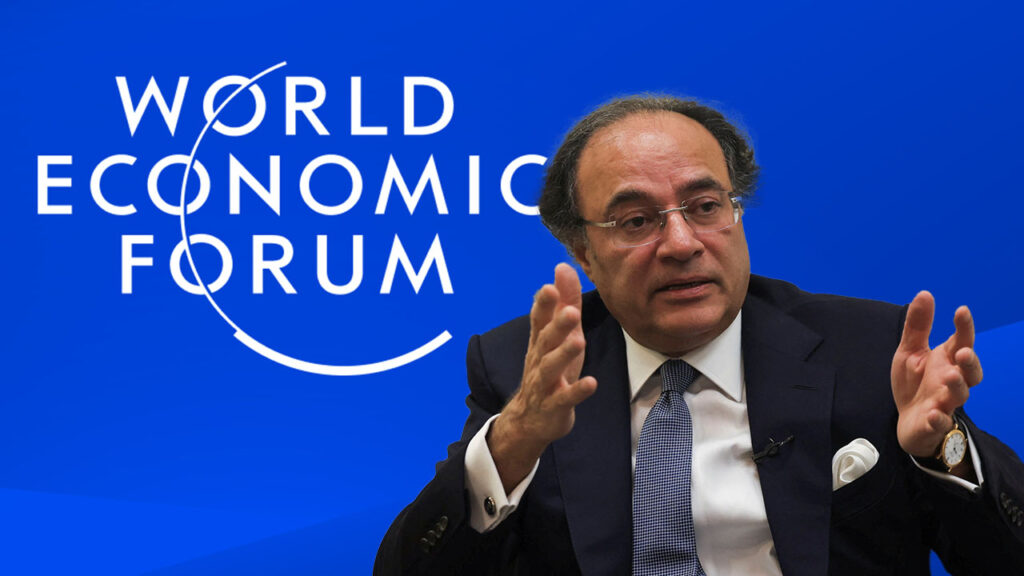- Web
- Feb 05, 2026
FinMin urges structural reforms to tackle Pakistan’s twin deficits
-

- Web Desk
- Jan 22, 2025

WEB DESK: Pakistan’s Finance Minister, Senator Muhammad Aurangzeb, addressed a high-level panel discussion at the World Economic Forum, shedding light on the growing global debt burden on developing economies.
Speaking as a panellist, the Finance Minister shared Pakistan’s economic challenges and the government’s ongoing efforts to strengthen the country’s financial outlook.
Aurangzeb identified the twin deficits of the current account and fiscal account as the largest obstacles facing Pakistan’s economy. “The unsustainable tax-to-GDP ratio of 9 to 10 per cent has been the primary driver of the fiscal deficit,” he explained. The government, through structural reforms, is working towards increasing this ratio to 13 per cent.
“Without raising the tax-to-GDP ratio, it is impossible to achieve a respectable position among nations,” he emphasised. The Minister reiterated that the government is focused on reducing its expenditures and lowering the debt repayment burden.
Aurangzeb noted that Pakistan’s debt-to-GDP ratio has already fallen from 78 per cent to 67 per cent, showcasing progress in managing the country’s fiscal challenges.
“Taking on debt is not inherently bad, but its proper utilisation is crucial,” he remarked, stressing the importance of directing loans towards productive ventures that boost the country’s export potential. “We need to focus on enhancing productivity and promoting exports, rather than using loans to cover expenditures or provide subsidies.”
The Finance Minister acknowledged the volatile nature of Pakistan’s economic growth, pointing out that when the GDP growth rate reaches 4 per cent, the country’s dependence on imports disrupts the balance of payments, leading to recurring visits to the International Monetary Fund (IMF). He further reiterated that achieving sustainable development remains the top priority for the country.
“We are pursuing a policy to stabilise the economy through exports by fundamentally altering the DNA of the economy,” he said. Aurangzeb also underscored the critical role of the private sector in driving Pakistan’s economic development, stating that the government is keen to create more employment opportunities for the youth through a sustainable policy framework and policy continuity.
Aurangzeb also highlighted Pakistan’s partnership with the World Bank in a ten-year development programme aimed at addressing population growth, poverty, and environmental challenges to pave the way for sustainable economic growth.
On the China-Pakistan Economic Corridor (CPEC), the Minister revealed that the second phase of the initiative would shift its focus from government-to-government cooperation to business-to-business partnerships. He emphasised that Chinese companies would be encouraged to relocate their production units to Pakistan, positioning the country as a key export hub for China.
Aurangzeb also stated that Pakistan seeks access to the Chinese capital market through the issuance of Panda Bonds, adding that the country is eager to learn from Egypt’s experience in improving credit ratings and diversifying market access.
In closing, the Finance Minister underscored the importance of fostering the IT sector, pointing out the vast opportunities available to the youth. He hailed the positive trend of Pakistani youth securing good jobs globally, while reaffirming the government’s commitment to generating more domestic employment opportunities.
“Without putting our house in order, it will be difficult to escape the burden of debt,” Aurangzeb concluded, reiterating the government’s determination to implement reforms and place Pakistan on a path towards sustainable economic growth.
Read next: Greenpeace activists stage climate protest inside WEF meeting in Davos




